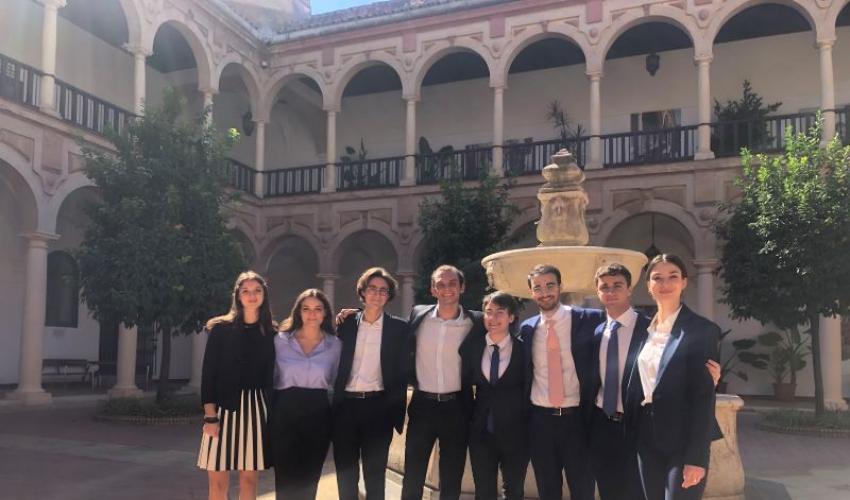
​The Best Oralist Is a Bocconian
FRANCESCO MAURI WINS AWARD IN CORDOBA IN THE MOOT IN COMPARATIVE PUBLIC LAWDo you speak excellent English, have a strong curiosity in the field of comparative public law and human rights and a good propensity to work in a team? If you meet these requirements if you are an excellent candidate to participate in a Moot, in particular the Moot in Comparative Public Law that has just ended with the final phase, the one reserved for discussions before the Courts, held in Cordoba, Spain. And it does not matter if the students of Bocconi's comparative public law course are on average a couple of years younger than their foreign colleagues, especially those of American universities. And even less does it matter that, by holding discussions before the Courts in English, they find themselves competing with opponents who are often native speakers.
Also this year, in fact, a Bocconi student, Francesco Mauri, won the recognition of Best Oralist, debating among other things before the Supreme Court of the United States. Eight students were selected and divided into two groups, who had to prepare to debate on the very sensitive issue of the balance between security and freedom of religion in the context of new technologies before the Supreme Court of the United States and the European Court of Human Rights, composed of real judges and university professors. The first team (Ludovica Davoli, Francesco Mauri, Alessandro Stampa and Arianna Toma) faced the US judges, the second (Samuele Appignanesi, Anna Karhausen, Marco Lo Nardo and Antonio Papaleo) instead confronted the European Court, led by coaches Micol Ferrario, Chiara Graziani and Sergio Sulmicelli.
"The competition is divided into two phases", explains Arianna Vedaschi, professor in charge of the Moot in Comparative Public Law and full professor of comparative public law at the Department of Legal Studies of Bocconi, "the first written and, after a selection of the works by the organizing committee, the best teams access the oral phase, that of the actual debate. Our students had to overcome some obstacles compared to their colleagues, especially those of the Anglo-Saxon universities," continues Vedaschi, "first of all their age, and therefore in experience, on average younger than that of their colleagues. Secondly, the challenge is not so much linguistic, since they had to discuss complex problems in English, confronting opponents who are also native speakers, but to manage the debate according to the rules of a different system from their own."
The Best Oralist award therefore takes on even greater importance, as Vedaschi confirms: "An individual recognition that is also, indeed above all, the result of great work by the team, which was able to prepare legally convincing arguments." As confirmed by the winner himself, Francesco Mauri, who adds: "In our case the research work of the team was fundamental, because if it is true that facing a discussion in English puts us at a disadvantage, the most complex thing was to reconstruct the American legal 'lexicon', which uses a terminology that we did not know." Individual qualities count, a certain dialectical ability, but preparation is the most important part: "In these competitions you test your ability to work in a team, to contribute each for their part to the final goal. We expected to have to answer the questions of the Court, but not to so many", continues Francesco, "it was a way to touch your own limits and try to go further. But without the support of the whole team it would have been impossible."
by Davide Ripamonti
Translated by Richard Greenslade
